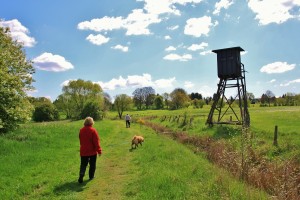Feeling Stressed? If so, you may feel aches and pains, feel your life is out of control, experience anger or feel depressed. February is National Heart Health Month.
Let’s explore some signs that may indicate that you are stressed.
- Do you overeat?
- Do you drink too much alcohol?
- Do you feel jittery?
- Are you having trouble sleeping?
- Are you having headaches or aches in your back, neck or stomach?
- Are your muscles tight?
- Are your jaws clenched?
- Do you have feelings of anger, anxiety, depression, or helplessness?
- Are you feeling out of control?
- Are you forgetful?
For many of us, when we think about heart health, we cue into nutrition, exercise and cholesterol levels. Stress is another risk factor to consider. Stress affects each of us, and it can affect your heart. Excessive stress may also contribute to high blood pressure, ulcers, or irritable bowel syndrome. We may feel anxious or overwhelmed if we are under excessive stress. Stress can increase the body’s release of certain hormones, such as cortisol and adrenaline. If these levels stay high from chronic stress, they may lead to serious health problems such as heart disease and high blood pressure.
How can you reduce the stress in your life? Tackle stress with healthy habits such as moving more, talking with others, and finding more opportunities to laugh. Explore these ideas to fight stress.
Looking for ideas to get you started on reducing your stress levels?
- Practice deep breathing.
- Take a yoga or Tai Chi class.
- Listen to relaxing music.
- Take a walk.
- Meditate.
- Spend time in nature.
- Relax and read.
- Call a friend.
- Spend time on a hobby that you enjoy.

The American Heart Association shares these simple tips can also help you gain control of your stress levels.
Positive Self Talk can help you manage your stress whereas negative self talk (“I have too much to do”; “I’m stupid” or “I’m overwhelmed”) contributes to your stress levels. Reframing self talk helps relieve some of this stress. Use statements that empower you such as “I can get the tasks done” or “I will say no to new projects.” Positive self talk helps calm you down and encourages you to stay focused on the task and manage your stress.
Use Emergency Stress Stoppers to halt stress in your life. These stress stoppers may include things such as taking deep breaths, taking a walk, pausing and refocusing, or setting your clock ahead so that you aren’t late.
Find pleasure in little things. Every day, even if it is only for 15 minutes, spend time doing something you truly enjoy. Work on an art project or hobby that you enjoy. Call a friend or family member. Step outside and enjoy the beauty of nature. Read a book or magazine for pleasure. Play a game with your kids. Think about what you enjoy doing and take the time to do it.
Daily Relaxation takes practice. Take a class or listen to a recording to learn relaxation techniques. Guided imagery practices are available free from Ohio State’s Center for Integrative Health and Wellness. These practices can help you relax and gain control over the stress in your life.
Use these tools to help you manage the stress in your life. Learn ways to reduce your stress levels so that you have a healthier and happier life.


